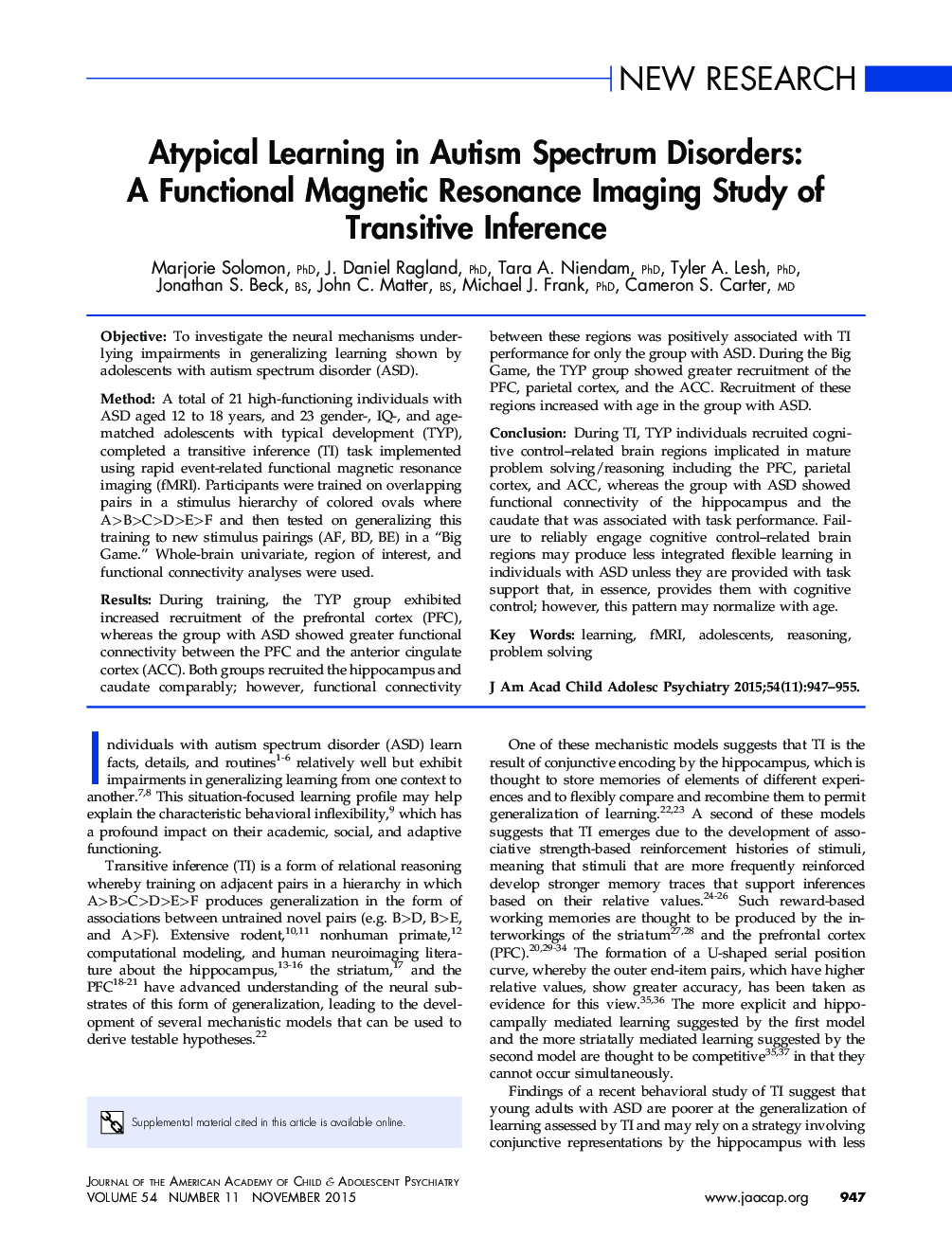| کد مقاله | کد نشریه | سال انتشار | مقاله انگلیسی | نسخه تمام متن |
|---|---|---|---|---|
| 324499 | 1432934 | 2015 | 9 صفحه PDF | دانلود رایگان |
ObjectiveTo investigate the neural mechanisms underlying impairments in generalizing learning shown by adolescents with autism spectrum disorder (ASD).MethodA total of 21 high-functioning individuals with ASD aged 12 to 18 years, and 23 gender-, IQ-, and age-matched adolescents with typical development (TYP), completed a transitive inference (TI) task implemented using rapid event-related functional magnetic resonance imaging (fMRI). Participants were trained on overlapping pairs in a stimulus hierarchy of colored ovals where A>B>C>D>E>F and then tested on generalizing this training to new stimulus pairings (AF, BD, BE) in a “Big Game.” Whole-brain univariate, region of interest, and functional connectivity analyses were used.ResultsDuring training, the TYP group exhibited increased recruitment of the prefrontal cortex (PFC), whereas the group with ASD showed greater functional connectivity between the PFC and the anterior cingulate cortex (ACC). Both groups recruited the hippocampus and caudate comparably; however, functional connectivity between these regions was positively associated with TI performance for only the group with ASD. During the Big Game, the TYP group showed greater recruitment of the PFC, parietal cortex, and the ACC. Recruitment of these regions increased with age in the group with ASD.ConclusionDuring TI, TYP individuals recruited cognitive control–related brain regions implicated in mature problem solving/reasoning including the PFC, parietal cortex, and ACC, whereas the group with ASD showed functional connectivity of the hippocampus and the caudate that was associated with task performance. Failure to reliably engage cognitive control–related brain regions may produce less integrated flexible learning in individuals with ASD unless they are provided with task support that, in essence, provides them with cognitive control; however, this pattern may normalize with age.
Journal: Journal of the American Academy of Child & Adolescent Psychiatry - Volume 54, Issue 11, November 2015, Pages 947–955
